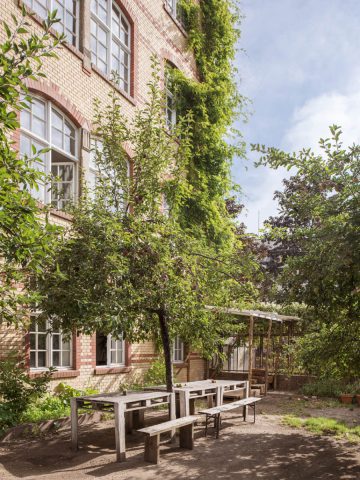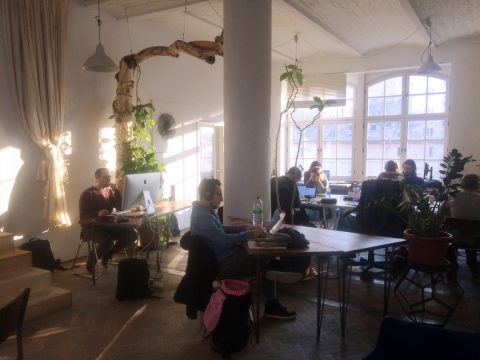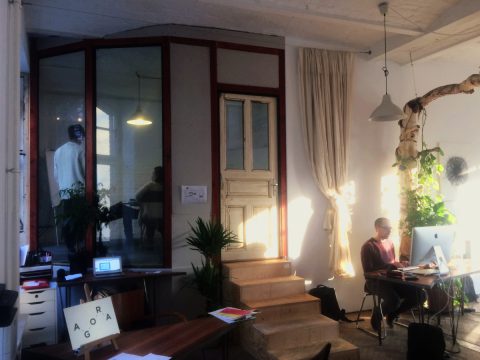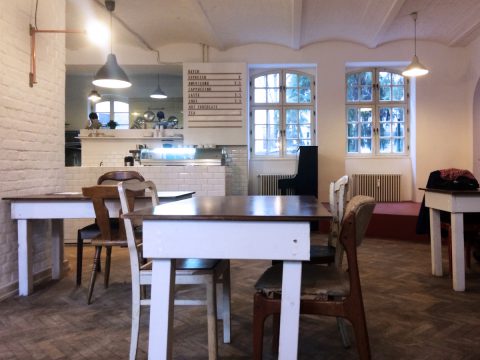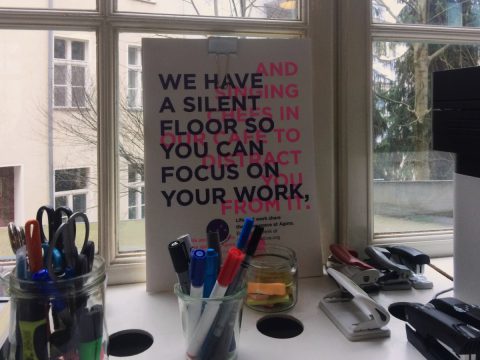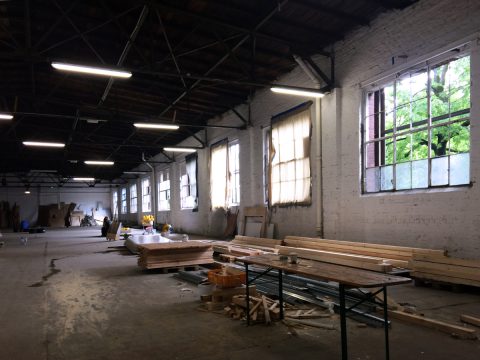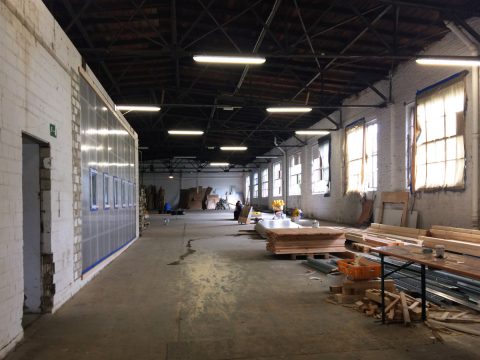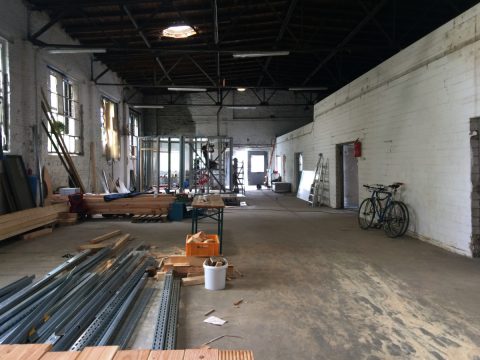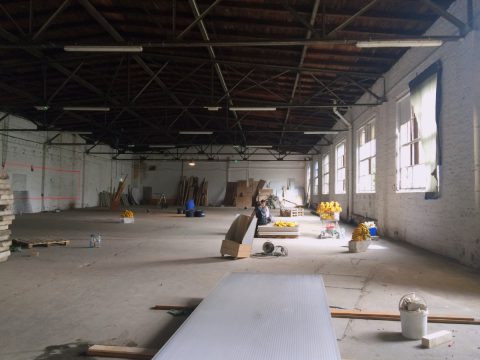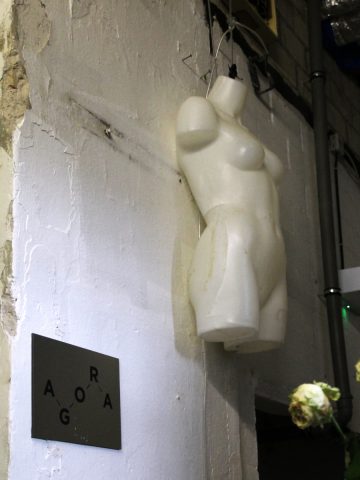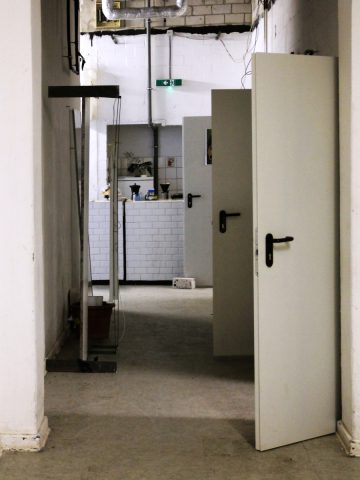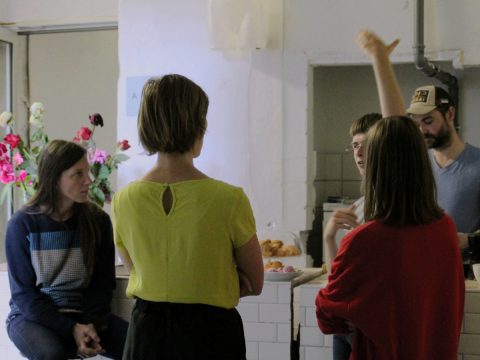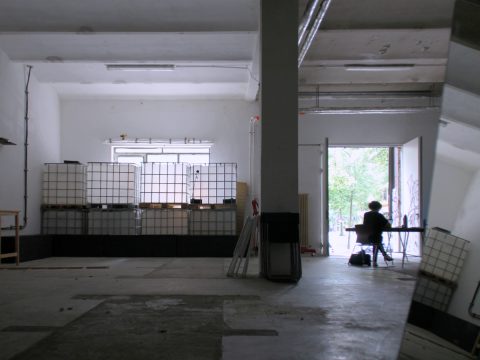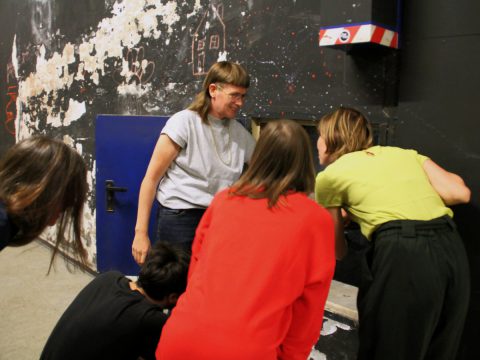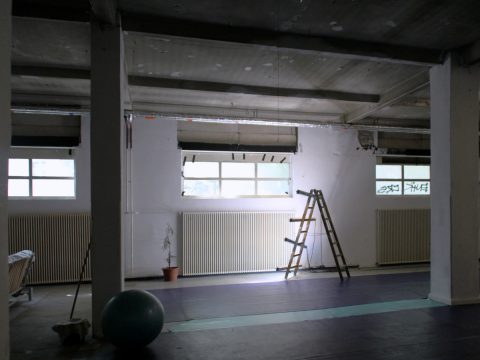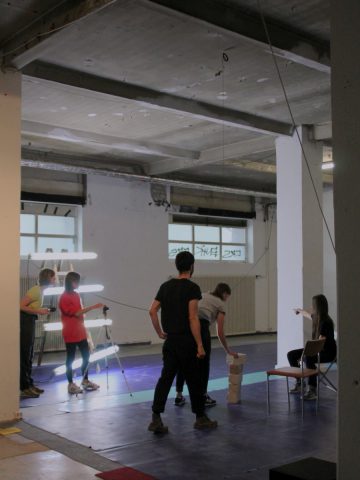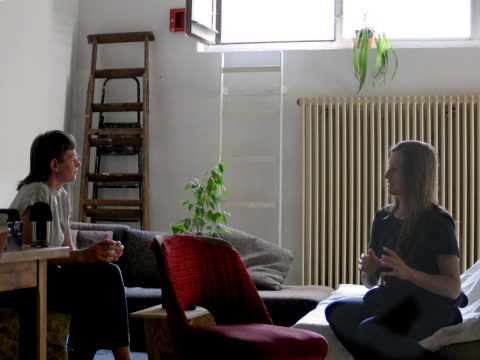Agora Collective
15.May 2018
(Berlin)
The Agora Collective—a Berlin-based centre for contemporary practices—was founded in 2011 by a multidisciplinary team as an independent project space which conceives of and experiments with models of working together by providing stable spaces for artists to engage in collaborative and community-based practices.
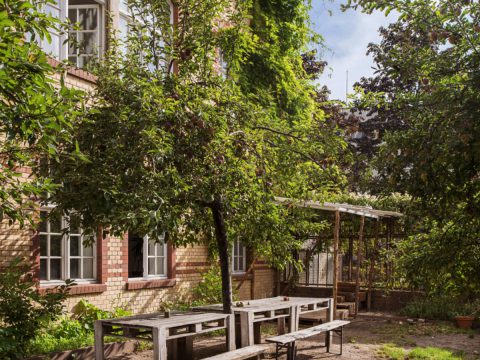
At its first venue in Mittelweg, Agora divided and combined different spheres—food, work, learning and art—through its architecture. Situated in a former factory that produced buttons, it had opened a café and a permaculture garden on the ground floor, followed by a co-working space on the first floor and learning and exhibition space on the second and third floors. According to the five core team members, diversity was important for the place to generate cross-fertilisation. They thus tried to choose people who would dedicate their time to different things in the co-working area as well as in the other levels of the building, and they organised community dinners for everyone once a month. After the building in Mittelweg was sold to a new owner, the Agora team started to team up with new partners to expand Agora and search for a new place.
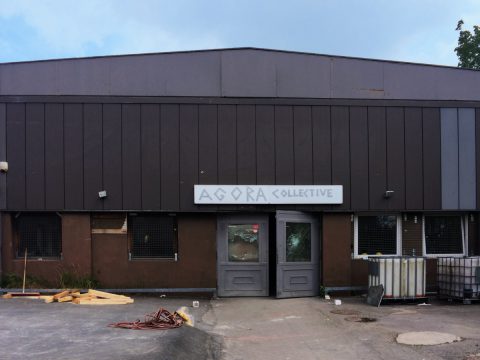
They found a new home on the premise of the former Kindl brewery not far away from their first venue. In 2016, they started running both venues in parallel until they finally moved out of Mittelweg in 2017.
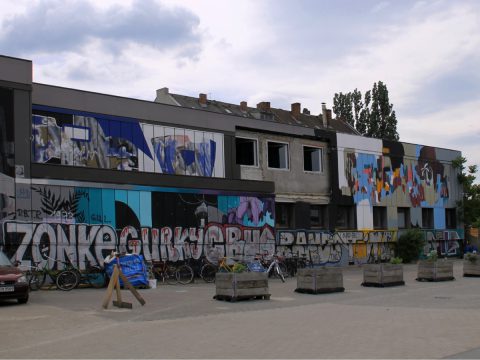
After Agora had transferred from its first venue in Mittelweg to the Kindl brewery in Neukölln, it faced considerable challenges involved with co-existence with their new partners under exacerbating economic demands. Consequently, they moved to the basement of the building.
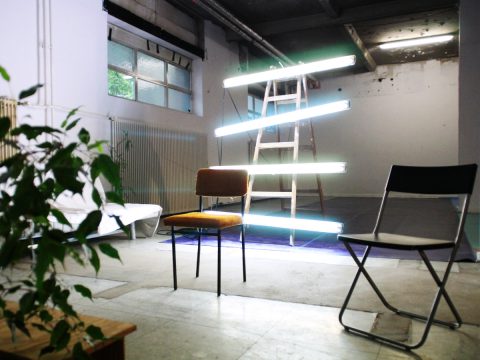
Having moved to and further developed the building’s basement, the collective has eventually been hit by its own fragilities. Having developed an understanding about the political (and economic) implications of securing spaces for arts and culture in the city, Agora eventually moved out of the new building and is currently a nomadic collective. The collective is searching for a new venue in Berlin and new people for its core team.
